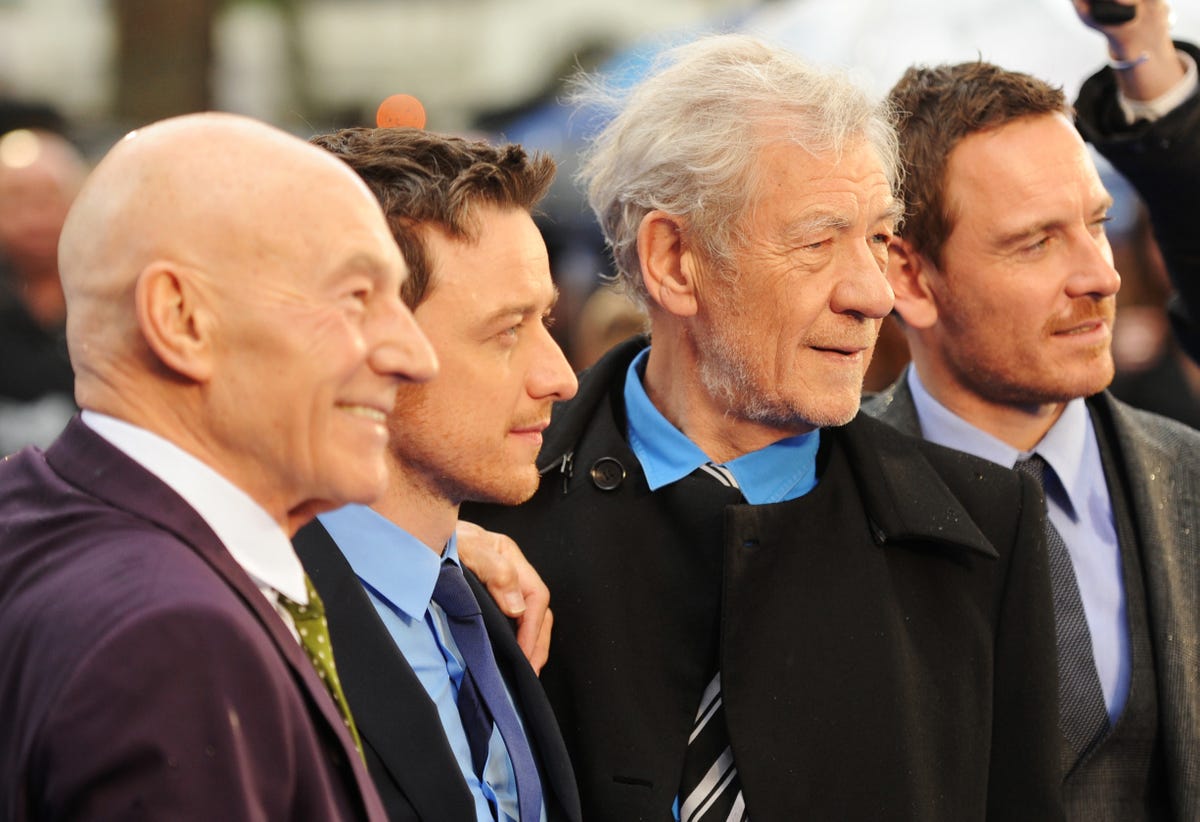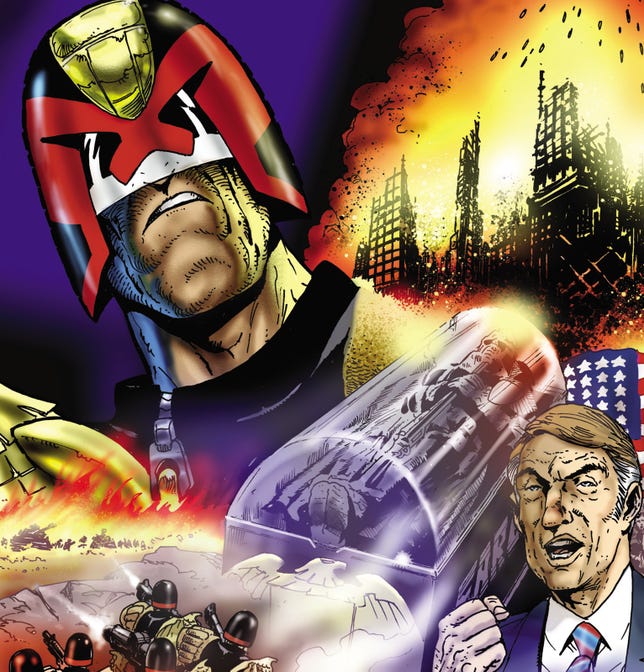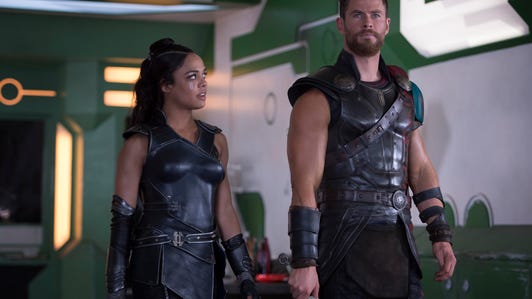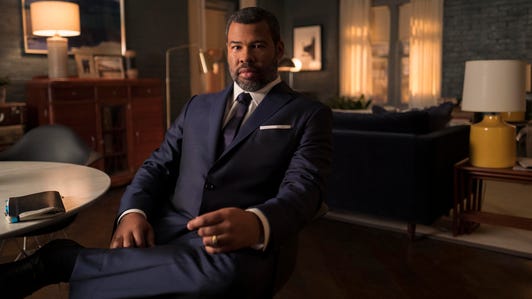
We live in a world of sequels, reboots and spinoffs. But the absolute worst of a world where nothing is original? Prequels. Prequels suck.
Unless...
From Lord of the Rings to Game of Thrones, from Obi-Wan Kenobi to Andor, a prequel has to follow one golden rule to justify its existence.
A prequel has to tell us something we don't already know.
What is a prequel? It's a story that delves back into an earlier point in the backstory of a fictional series. The term was apparently first used in 1958 by sci-fi author Anthony Boucher, though creators have stepped back in time to explore the history of their characters since ancient Greek epic poem The Cypria filled in events before The Iliad, or ol' Bill Shakespeare followedeth Richard III by rewinding to Richard II. As franchises and cinematic universes have become the dominant force in media, we've seen a glut of such tales, including 2022's biggest TV shows: Game of Thrones spin-off House of the Dragon, Lord of the Rings story The Rings of Power and Star Wars series Andor -- which is technically a prequel to a prequel!
It was Star Wars that brought the term "prequel" into the forefront of the modern media industry. In the late 1990s, I wasn't alone in getting excited about the Star Wars prequels. George Lucas telling new Star Wars stories? Yes please! A bunch of cool stars, including the pitch-perfect casting of indie darling Ewan MacGregor as a young Obi-Wan Kenobi? Sign me up! And the Force was strong with the Phantom Menace trailer, which marked a significant moment in the early history of the nascent Internet.
The excitement didn't last.
I'm not going to rehash every criticism of the Star Wars prequels -- which actually weren't all bad -- and I'm not here to single out George Lucas, who after all did give us the original trilogy. I refer to the infamous Star Wars films because they're the first modern prequels, and in some ways they're the apotheosis of the problem with prequel stories.
The pleasure of a prequel -- or sequel or reboot or remake -- is obvious. Any opportunity to spend more time with a beloved character is welcome. And if, as with Star Wars or Breaking Bad, the story has come to a natural end, a simple way to dip into that world again is to go back to an earlier point in the story. See the start of the Empire, or the origin of Saul Goodman in Better Call Saul. And it's always fun to re-create a beloved story on new terms -- basically, playing "Who would you cast in a remake of...?", the fun game my friends and I used to play at school because we didn't have girlfriends.
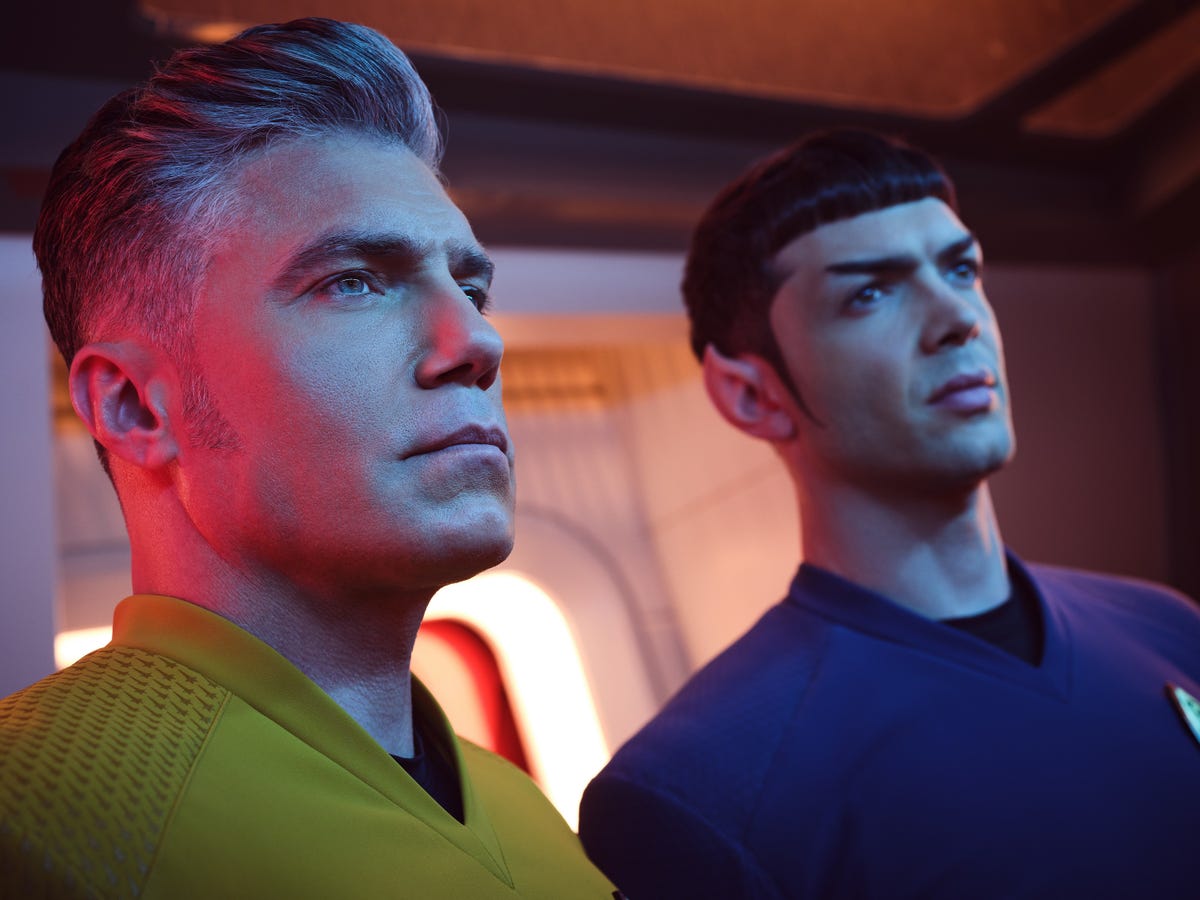
Captain Pike and sexy young Spock in Star Trek: Strange New Worlds.
James Dimmock/Paramount PlusSo sure, I nerd out with the best of 'em at the sheer perfection of casting choices like Simon Pegg as Scotty in JJ Abrams' Star Trek movies, or Mads Mikkelsen as Hannibal Lector. But fun casting is just that: fun. It's the sizzle, not the steak. As much as Zachary Quinto might embody Spock in the new Trek, or Robin Lord Taylor might inhabit the young Penguin in Gotham, or Marc Pickering is uncannily perfect as a young Steve Buscemi in Boardwalk Empire, these are just surface gloss if they're not supported by a great story that, crucially, hits us with something we didn't already know.
X-Men: First Class is perhaps the perfect example. It's fun to see James McAvoy and Michael Fassbender play younger versions of Patrick Stewart and Ian McKellen, but there's a Marvel no-prize to anyone who can tell me what actually happens in that movie.
These casting games may be fun on paper, but that doesn't mean they have to expand beyond pub chat or a Twitter conversation to actually become a full-blown movie. Take Prometheus and Alien: Covenant -- seriously, what has happened to Ridley Scott in recent years?
James McAvoy and Michael Fassbender play younger versions of Patrick Stewart and Ian McKellen in the X-Men series, but we know where their stories are headed.
Dave J. Hogan/Getty ImagesAnd look at The Hobbit movies, a prequel trilogy to the Lord of the Rings series. OK, I know plenty of people love those movies and relish the return to Middle-earth. But that's one movie's worth of story stretched into three overlong epics. Do we really need these multiple movies, or could directors like Peter Jackson, Jon Watts (Spider-Man) and Taika Waititi (Thor) spend those years doing something new and original instead?
At least The Hobbit doesn't actively contradict the beloved original films, another potential danger of a prequel. When a prequel messes with the continuity and canon of a series, it runs the risk of rendering the original nonsensical. Star Trek prequel TV shows Enterprise and Discovery both found themselves stuck in such a continuity cul-de-sac that they had to resort to time travel silliness to make it work (the same nonsense that hamstrung the big-screen JJ Abrams reboot). And once again, we can go back to Star Wars: When various characters meet each other in the prequels, it actually contradicts the original films.
But when it all comes down to it, the fundamental flaw with prequels is that all too often, all they tell us is what we already know. Ultimately, nine hours of prequel movies explaining Anakin Skywalker's family history don't have the emotional impact of the single line "No... I am your father."
Even now that Star Wars is out of George Lucas' hands and part of Disney's magic kingdom, the folks with the keys to the series haven't learned the lesson of the prequels. In fact, they've doubled down on continually returning to the same people and places we've already seen. Spinoffs for Han Solo and Boba Fett and Obi-Wan Kenobi had their moments but were still constrained by the ever-shrinking continuity cage. The entire plot of Rogue One had already been told in Return of the Jedi in a single line of dialogue: "Many Bothans died to bring us this information." Succinct, yet wonderfully evocative, this one line sums up the fatal import of the attack, the sacrifice of others across the galaxy, the heavy responsibility that weighs on Luke Skywalker and his plucky pals. It's a great line. What is there to add? Apparently quite a lot, as TV series Andor is coming soon to Disney Plus.
It's not just Star Wars that suffers from this problem. It's fun to see Marvel superhero Wolverine fighting in every major war of the 20th century in Wolverine: Origins, but we didn't need a whole movie about his transformation into a super-soldier, because it was already dealt with in far more compelling fashion in the main X-Men series. We didn't need Fantastic Beasts, because we've seen the Harry Potter films. We didn't need the whole of 2011's The Thing prequel, because that film's entire story has already been told in the first few minutes of the 1982 original.
If a prequel is to justify its existence, it needs to change our perspective. On top of a fresh and interesting story that can actually surprise us, it needs -- more importantly -- to provide something that changes the way we view the original story.
When you get to the end of Memento or The Usual Suspects, or any movie with a big shocking twist, if you go back and watch the film again, it hits totally different compared with your first viewing.
That's what a good prequel should do.
Compare the prequel Indiana Jones and the Temple of Doom with the mini-prequel flashback sequence at the start of Indiana Jones and the Last Crusade. There's zero reason Temple of Doom needs to be set before Raiders of the Lost Ark. But the origin story in Last Crusade not only shows us how Indy picks up the tools of his trade, it also reveals his relationship with his father. So not only do we get the fan-pleasing fun of seeing a young Indy played by a younger actor (River Phoenix), we also learn something that drives the rest of the film forward: his craving for his father's approval. That adds an extra dimension to the previous movies too as we realize what Indy has really been searching for throughout the series.
Most prequels don't gift us with a fresh perspective on the original. So are there any really good prequels? Of course. The Godfather Part II, for a start. I'm sure you're already heading for the comments to list your favorites, but for an example of a prequel done gloriously right that means a lot to me personally, let me turn to The Galaxy's Greatest Comic.
A law unto himself
In 1977, British sci-fi comic 2000AD introduced sci-fi supercop Judge Dredd, created by writer John Wagner and artist Carlos Ezquerra. Still running in the same comic today, satirical antihero Dredd is judge, jury and executioner in a totalitarian future America. But he never had an origin story, exploding into action fully formed in his first appearance, his backstory only filled in sparingly over the years since.
But on the 30th anniversary of both Dredd and 2000AD, Wagner and Ezquerra finally returned to that backstory in the 23-issue epic Judge Dredd: Origins. Like The Godfather Part II and Hong Kong cop movie classic Infernal Affairs II, Origins perfectly interweaves prequel and sequel into one story that changes both the past and the future, of both the character and the world in which he lives.
Judge Dredd: Origins explores the dramatic backstory of the long-running comic book character.
Rebellion/Carlos EzquerraIn Origins we learn how the Judge system came to be. We see Dredd cloned from the first Judge, the incorruptible Fargo. We see Dredd learn his trade. We see young Dredd in action. All that fun surface gloss which fans want from a prequel, but still stuff we already know.
However. The story then reveals something so huge it rips the rug out from under both us, the readers, and Judge Dredd himself.
Dredd is a man of unbending dedication who's done terrible things over the years -- killing and imprisoning his own citizens on a daily basis, even wiping out a rival city of millions in a nuclear war -- but he's always justified these atrocities with unshakable faith in the system that created him.
Except Origins reveals that the whole thing was built on a lie.
It's a gut punch 30 years in the making, and a stunning revelation that casts everything which follows in a new light. It throws a chilling shadow over everything that's gone before and, crucially, everything that follows. After the prequel's revelation, you can't read any Judge Dredd story, before or since, in the same light.
And that's our golden rule.
Just don't talk to me about midi-chlorians.









 Add Category
Add Category